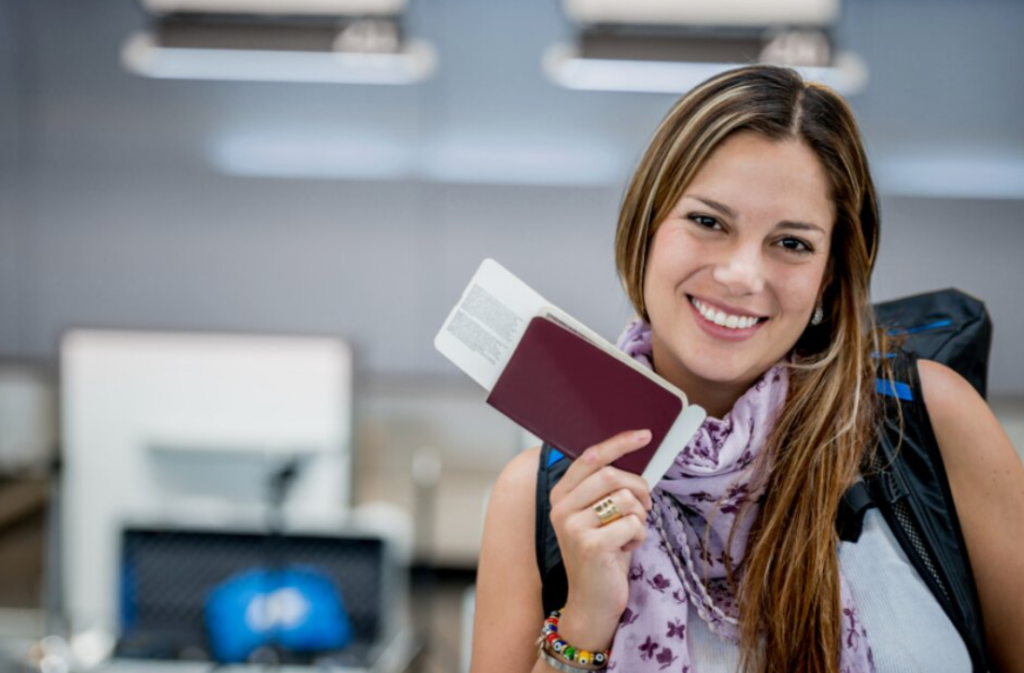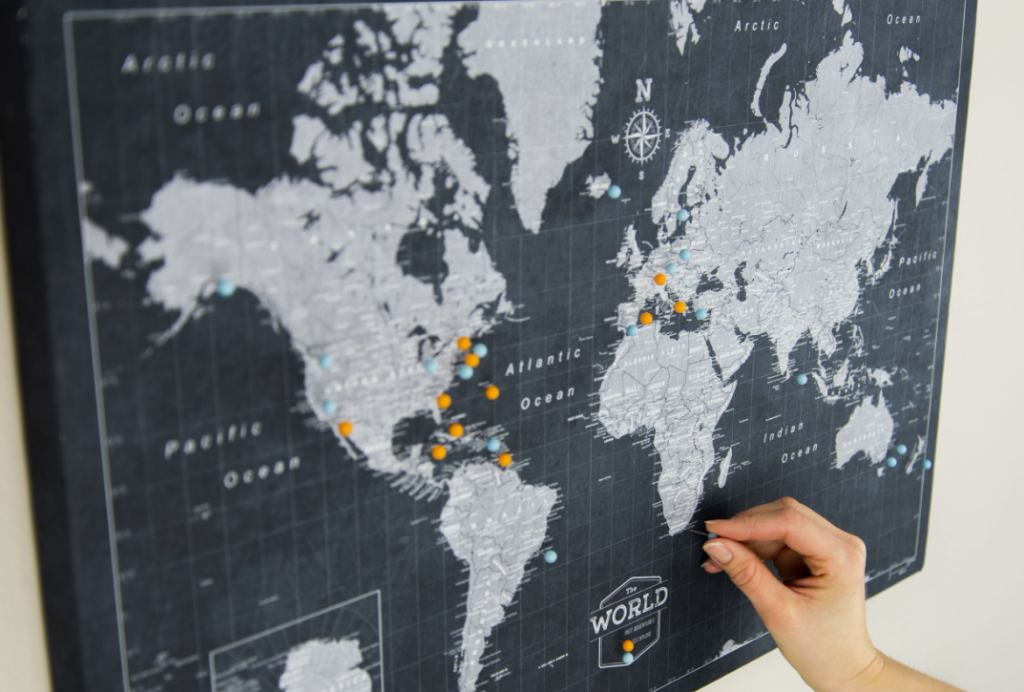Physical Address
304 North Cardinal St.
Dorchester Center, MA 02124
Physical Address
304 North Cardinal St.
Dorchester Center, MA 02124
Traveling has become increasingly common for students of all ages, from elementary school trips to Washington, D.C., to college students studying abroad. Whether you’re planning to travel yourself or considering letting your child go abroad, there are several key decisions to make.
This article guides you through choosing a destination, funding your trip, and deciding whether to opt for a packaged deal or plan independently. You’ll find helpful statistics, useful websites, and advice on handling culture shock, ensuring safety, and preserving your memories with photography tips.
Take a moment to read and start planning your exciting trip abroad!

Imagine
You are at the United States Holocaust Memorial Museum in Washington, D.C., looking through the glass at pictures of Auschwitz. Behind you, a group of fifth-grade girls giggle and laugh about their teacher. You want to turn around and reprimand them for being disrespectful, but before you get a chance, they run off.
Now imagine that you are the fifth-grader. You’ve never dealt with death before. Not even the death of grandparents or any other family members. You are being expected to look through the glass and try and understand the deaths of millions of Holocaust victims, and to do so respectfully, what ever that means.
Too Young?
Aside from the physical exhaustion that comes with traveling, and the care that comes with taking younger children on journeys such as to Washington, D.C., how young is too young for an individual to understand and appreciate cultural and historical events like the Holocaust?
Consider This:
There are many things to consider when determining the appropriate age to travel or to send your children on school trips.
First of all, the younger the student, the more important it is to have a chaperone. Not just a tour guide to guide them around like a herd of cattle, but someone to ask questions about what they are seeing. There should be at least one chaperone to every three students to make conversations like these easier.
Investigate experiences that are appropriate for different ages. The United States Holocaust Memorial Museum in D.C., for example, offers an exhibit geared toward children titled “Remember the Children: Daniels Story.” Daniel’s Story allows younger students to get a sense of what happened during the Holocaust without putting them face to face with the grim, cruel side of humanity.
Beyond The Grim
The question of “How Young is Too Young?” is not just something that needs to be addressed when facing dark subjects such as the Holocaust. Even trips to palaces in Europe, or the National Archive Museum can be tiring or even boring for younger students. When considering allowing your student to go on a trip, be aware of what options are out there that are appropriate for the age of the student. Don’t be afraid to push the envelope. Instead, create fun and innovative ways to relate history and culture to the students, and be prepared to answer any questions that come your way.

Study Abroad Programs
Studying abroad is a great way to travel and experience the world while also helping you complete your college degree. Taking this route also allows you to potentially finance your travels through student aid and scholarships.
The first place to investigate is the college or university you attend. Most schools offer study abroad programs, and will help you find a program that fits your desires should the school not have what you are looking for.
On the Web
If you are more interested in surfing the internet for a program, there are two great websites to which you can go to find a program that suits you.
The American Council for International Studies: Part of the AIFS, the American Institute of Foreign Studies, ACIS offers educational tours and packages for the student traveler, specifically high school students. The organization also offers scholarships and fundraising tips.
The National Education Travel Council: NETC also offers educational tours for middle and high school students, as well as adult programs. They also offer fundraising tips, as well as ideas for what to pack and how to prepare for your trip.
Keeping the Credit You’ve Earned
When you are looking for a study abroad program, it is imperative to see how the courses you take will translate into your current curriculum. Make sure you have OK’d the programs with Academic Affairs, and the chair of your department. Also, be sure that the Registrar’s office understands your plans and gives you the credits you have been authorized to receive.
We Don’t Need No Education
The above sites are great for educational trips, but there are more reasons than one to travel. While placing yourself in an academic environment is great, there are many other learning experiences that you will find outside the classroom. Many students take the backpacking-through-Europe route instead of studying abroad. On the one hand, you will not get credit for taking classes, but you will also be open to different options such as youth hostels. Backpacking allows you to immerse yourself in local cultures, navigate unfamiliar environments, and develop essential life skills like budgeting and adaptability. In fact, while planning your travels, it’s a great time to consider financial tools, such as the best starter credit cards, to help manage expenses and build credit responsibly. These experiences, both financial and personal, can leave you with lessons just as valuable as those earned in a classroom.
If you plan on going to Europe without a school group or tour, take a friend. You will not get lonely, and there is safety in numbers.

So you’ve picked a destination and now you have to decide how to fund your ventures. You will probably be tempted to go to your parents first, who may or may not extend open arms or open wallets. If they do offer, accept! If the don’t, don’t panic. There are other ways to fund your trip.
Financial Aid
According to the American Institute of Foreign Studies, or the AIFS, you may be eligible for the same financial aid that you receive at your current institution. The best way to find out would be speaking to your school’s Financial Aid Office. You never know until you ask.
Online sites claims that you may be able to receive the same financial aid that you do at your current school, but you must carry at least a half-time load at the institution you are visiting, and receive credit that you can apply toward your degree. You may even be able to get an increase in your Federal Pell Grant to help cover the cost of study-abroad programs that cost more than the cost of attendance at your current university.
Scholarships
There are scholarships out there; you just need to know where to find them. AIFS offers multiple scholarships that you can check out online. These scholarships, however, are only awarded to those traveling with AIFS.
Online sites also list several scholarships that are available for study abroad aid. Many of these scholarships are specific to the nation to which you wish to travel, such organizations such as the CIMO, Center for International Mobility, which offers information on how to fund your travels to Finland.
Fundraising
In addition to general financial aid and scholarships, fundraising may also help you build the funds for your big trip. OK, you might feel like a Girl Scout selling cookies, or a Boy Scout selling popcorn, but fundraising, especially as a group, is a great way to earn some cash for your trip. But the ACIS and the NETC have fundraising tips. A few examples include bake sales, car washes, sponsoring school dances, etc.

decision you make is vital: Take a package tour deal, or invent your own itinerary. Two things to think about when making this decision are your own personality, and the cost of each option.
Personality
First, consider who you are as an individual. What makes you comfortable when traveling, or in other aspects of your life.
Category A:
Category B:
If you fit into category A, you are more likely to prefer a tour with a pre-planned itinerary. You are someone who wants to see and experience all that is possible during your trip.
If category B sounds more like you, you would be better planning your trip as you go along. You are more likely to want to relax as opposed to tie up every minute you have on your trip. Group tours might make you feel like you are being herded like cattle. Don’t be too spontaneous though, you will need to plan the basics such as a budget, where to stay, and a general timeline before you go, just so that you don’t end up room-less when you arrive.
Cost
Of course there is more than your personality to consider when you are determining the best way for you to travel. Expense is also a key part to making this decision. Compare and contrast which options give you the most opportunities for your dollar. Depending on what you want out of your travels, the group tour may be less expensive. Planning your own trip may also prove to be cheaper, again, depending on what all you expect.
Websites also offer vacation packages as well as ways to calculate the price of planning your own trip.

So you’re going on a trip outside of the country. The food will be different, the language will be different, the weather will be different, and right now all you can think about is how you are going to deal with culture shock.
The Shocked Becoming the Shocker
What about the home you are going to stay in? They’ve prepared a bed for you with clean sheets and tried to bring in foods that they hope will fit your American pallet. They are going to be faced with a culture shock, too.
A Personal Experience
When I was in China, the college students I was helping with conversational English and myself entered what seemed to be a fast food restaurant. My hosts ordered steamed dumplings and soup. They asked if I needed to use the restroom. I did need to go, but I was also hungry, so I said I could wait. The shock I saw in their eyes startled me. They wanted me to go and they wanted me to go immediately. I didn’t understand at first, but then I realized they were concerned about my comfort. They wanted me to be as comfortable as possible. I wanted the same for them, and so I went to the bathroom.
What You Can Do
You might put that same shock on the faces of those around you. You might say something or do something that is completely opposite of what they might expect from you.
Try your best to keep the comfort level stable. Allow them to wait on you if waiting on you makes them the most comfortable. For example, my Indian friend feels closest to me when she is doing things for me, from making me a cup of tea to heating up some of her mother’s food. In my home, on the other hand, comfort occurs when those around me feel and show the manifestation of “my home is your home.” I feel best when my friends and family can come into my kitchen and feel that they can open the refrigerator and get a soda or a beer.
When it comes to becoming comfortable in your host home, one of the easiest things you can do is make your host comfortable with you. Let them shower you with kindness, but do it with gratitude. Don’t take advantage, but don’t let your “I can get it myself” tendencies to get in the way of building friendships that will last!

When you’re far away from home, sometimes all you want is your mother’s home cooking or a good McDonald’s cheeseburger. Food is part of who we are; it comforts us. Food is also ingrained in our culture. Partaking in the local foods means partaking in the culture that you have traveled so far to enjoy.
Home Sweet Home?
Pretend you’re in Nanjing, China experiencing a culture so different from your own, when suddenly you are faced with a dilemma: should you enjoy the local Chinese cuisine, or scurry across the street to the McDonald’s or the Pizza Hut? You might be surprised to find sushi flavored Lays potato chips, pork McNuggets and, at least in my experience, less than desirable pizza. Your little taste of home may not taste like the home you are used to at all.
Branching Out
Why not take this opportunity to taste things that you have never tasted before? It will help make you more comfortable with your surroundings and those around you more comfortable with you.
Stay away from the bland and the ordinary. If you are in China, don’t live on bowls of rice. Don’t be afraid, and don’t judge what those around you eat. Consider for a moment what Americans consume in bologna and hot dogs. Try the steamed dumplings. Try the duck blood soup. If it hasn’t killed the locals, it won’t kill you.
Staying Safe
Even though you should try other foods, you should do it safely. Because you may not be familiar with the foods you are eating, you will want to speak with your translator or someone who speaks English if you have food allergies. You should even learn how to ask for no peanuts, shellfish, etc. in the language you are in to ensure your safety.
E-Medicine.Com recommends avoiding raw meats, raw leafy vegetables, seafood, unpeeled fruits, and unpasteurized dairy products. Also, avoid drinking tap water. A great deal of this is because your immune system is not used to the germs and parasites that exist in other countries, not because foods in other nations is “dirty.”
Standing Your Ground
Don’t be afraid to ask. If you are a vegetarian, you can stay away from meat dishes. In China, for example, vegetarian dishes are popular and good!
In conclusion, be safe and firm, but don’t be afraid to try new things and expand your pallet!

You are underage and curious, and so many things are legal and open for you to try once you cross over international waterways. Your mother keeps reiterating to you the same phrase she has repeated since you were two years old: “Curiosity killed the cat.” Is there a way to experiment safely while still respecting your parents’ wishes and maintaining your own personal safety?
A Personal Experience
When I was seventeen, I went to Spain with my father and my stepmother to attend one of my step-cousin’s weddings. I could have sampled alcohol at any point on the trip, but the wedding proved to be the most available opportunity for me to do so. The combination of the crowd and the activity on the dance floor prevented my father from keeping up with me. I ran into my step-cousins and they insisted that I have a drink. “You’re in Spain!” They told me “You can’t not drink!” So they ordered me chocolate milk with a splash of coconut rum: an intriguing combination that left my stomach warm, but my mind still fully in tact. I didn’t tell my father about the drink until after I turned 21.
What to Expect
While it may not be true that if you can see over the bar stool you can get a drink in Europe, they do have a lower drinking age there. According to the National Youth Rights Association, only seven nations actually have set the minimum. These countries include the Ukraine, Russia, Honduras, Egypt, South Korea, Malaysia, and, of course the United States. So it is highly likely that you will have access to alcohol if you travel outside the U.S.
What to Do?
Understand a few things when making the decision as to whether or not to partake in the legal liquid.
Beyond Alcohol
Alcohol is not the only substance that you may come across in Europe. If you are in Amsterdam, you may find access to what is referred to as “soft drugs.” Don’t get too excited, drug use in Amsterdam is tolerated, not legal. According to drug websites, international law will not allow The Netherlands to legalize drug use, including marijuana. Also, coffee shops that frequently sell soft drugs such as marijuana are only allowed to sell 5 grams to someone over 18. But, if you find yourself in a position to try, remember that experimenting in unfamiliar surroundings is not a safe idea
Pretty Woman
And then, there is prostitution. Remember two things:
A). STD’s are not fun. B). You never know what wonderful European treasure you can take with you. Save your money for that!

With the growing concerns around global safety, you may find yourself wondering, “Could something happen to me while traveling abroad?” It’s natural to have these thoughts, but don’t let fear keep you from exploring the world. Instead, take proactive steps to ensure you’re well-prepared in case of any unexpected situations. By doing so, you can travel with peace of mind, knowing you’ve taken precautions.
Valuable Resources: U.S. State Department Travel Website
One of the most reliable resources for gathering information on what to do in case of a crisis is the U.S. State Department’s travel website: www.travel.state.gov.
Important Travel Tips from the U.S. Government
1. U.S. State Department:
2. FEMA (Federal Emergency Management Agency):
FEMA offers a variety of resources to help you prepare for emergencies. Visit www.fema.gov for guidance on how to handle various situations, from severe weather events to other emergencies. Some key suggestions include:
By being prepared for the “what ifs,” you can ensure that unexpected events won’t overshadow your trip. Take these precautions, but don’t let them prevent you from having an amazing and memorable experience abroad.

You are planning the trip of a lifetime, and you are already eager to take pictures. While you may not be a professional photographer, there are things that you can do, as well as things you can avoid, to make catching those amazing moments easier. Here are some photographic tips for the student traveler.
Before You Go
Familiarize yourself with your camera. Purchase a less expensive roll of film and test out the different functions your camera offers. Most cameras have an auto setting; however, functions such as night scene and landscaping allow you to take your picture taking to the next level. Learn the ins and outs of film. Film speed reflects the sensitivity of the film to light. The higher the speed of film, the more sensitive it is to light. 100 speed film, for example, is ideal for daylight or flash pictures, where as 800 speed film is preferred for lowlight or fast action. Remember though, that the higher the speed film, the grainier the picture will be.
Check the date of the film. Expired film reduces quality of the picture, and may even result in a ruined roll. Organize your photographic materials. Use a camera bag to store your camera, film, lenses, and any filters you may bring with you. Also, keep your film canisters and number them so that you can jot down in a notebook exactly where you were when you shot that particular roll.
If you are using a digital camera, don’t forget extra memory cards and either extra batteries or your battery charger. Leave your digital camera on the highest picture quality setting. It’s OK to use disposable one time cameras! These offer the ease of simple point-and-click photography. Disposable cameras require less investment, and allow you the option of purchasing varieties such as panoramic and underwater for less than if you sought these functions in reusable cameras.
While You Are There
Shoot pictures with the end in mind. Think about what you will be using your pictures for and take shots that matter to you. Make sure to get some photographs of yourself. Ask a fellow traveler to take pictures of you with landmarks that you find intriguing, or even ask a stranger to take a shot of you and your friends. Use common sense. If the sign in a museum, cathedral, etc. says no flash photography, don’t use your flash. You wouldn’t want kicked out of the museum, or for yours to be the last flash the Constitution could stand before crumbling into a pile.
Refrain from taking pictures of people you don’t know. From the store owner sweeping off his stoop in the morning, to the homeless man warming his hands on a trash can fire, taking pictures like these can be viewed as disrespectful. Remember the golden rule: Treat others as you would have them treat you. Don’t be afraid to take artistic pictures or potentially difficult shots. Film is relatively inexpensive when compared to your memories and creativity.
Afterward
Give your photographs the respect they deserve. Organize them into albums, scrapbooks, or photo boxes. You have spent too much time and money on these memories for them to be piled in shoeboxes.
Use acid, lignin, and PVC free papers and albums. The prevalence of scrap booking has made these items easy to find and fairly inexpensive. Avoid using magnetic photo albums. These are the ones with the sticky paper and plastic covering. Use these albums, and down the line you will have difficulty removing the pictures. Finally, look at your pictures often and relive the wonderful experiences you had during your travels!

Traveling as a student is an exciting opportunity to explore new places, experience different cultures, and gain valuable life experiences. However, packing for your trip can be a daunting task. To help you prepare, here’s a guide on what to pack and what you’ll need to ensure a smooth and enjoyable journey.
Packing Essentials for Student Travel
When packing for your trip, it’s important to strike a balance between bringing what you need and not overloading your luggage. Here are some essentials to include:
What’s Required for Student Travel
Beyond packing the right items, there are a few other important considerations to ensure a smooth trip:
By packing smart and being well-prepared, you can focus on making the most of your student travel experience. Remember, the key to a successful trip is preparation, so take the time to plan ahead and enjoy every moment of your adventure.